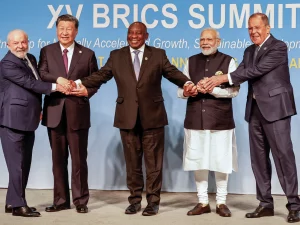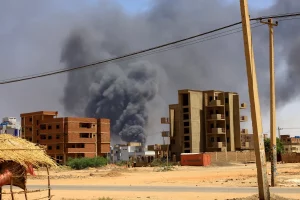Rachid Achachi: Is Morocco losing the ‘womb war’ to Algeria?

On a modern battlefield, the diversity of usable weapons is matched only by the limits of the human imagination. Drones, hypersonic missiles, electronic jamming, cruise missiles… the list goes on. But there is a weapon that we thought had been forgotten, as belonging to a bygone past: fertility, or the war of wombs.
However, it so happens that the total fertility rate, or according to the Larousse “the number of children that a woman would have during her fertile life if she behaved in accordance with the fertility by age observed during a given year”, is an indicator of socio-economic development. In other words, the more a country develops, the more its fertility decreases, heading gradually and inexorably towards the replacement rate of 2.1 children per woman on average. Consider the fertility rate that causes the size of a population to become stable, without growing or declining.
Accompanied, or even preceded, by a drop in infant mortality, this universal dynamic is described as a demographic transition.
Universal did I say? Not so sure, since during the last decade, two countries seem to stand out: Egypt and Algeria. After a long decline in their fertility rate since the 1970s, these two countries have been experiencing a rise in fertility for about 10-20 years, which does not seem to fit with the standard model of demographic transition.
If the reactionaries seem to welcome this new dynamic, seeing in it a form of vitalism in keeping with their narrow and literalist understanding of religion, a careful observation of the facts nevertheless suggests the opposite.
Disintegration of the State, halt to the dynamics of democratization, rise in poverty and the legacy of strongly pro-natalist pan-Arabism seem to be the main characteristics of these two countries.
But if Egypt is undoubtedly a demographic bomb, it is nevertheless far from our borders. This does not prevent us from wishing him the best.
On the other hand, the new demographic dynamic in Algeria is cause for concern. And by us, I mean both Moroccans and Algerians concerned about the future of their country.
Because all socio-demographers know that the fertility index is a measurement indicator, in the case of a downward dynamic, of the level of individuation of people. In other words, the development of citizens, aware of their rights and duties, of their individual sovereignty and concerned about their well-being in the broad sense.
Otherwise, a lasting rise in this rate, as is a priori the case in Algeria, where the fertility rate fell from 2.46 children per woman in 2004 to 3 in 2016, indicates a regression of this dynamic. , a weakening of civil society and a strengthening of the authoritarian, paternalistic and psycho-rigid logic of the State. Which, after all, is not to disturb the power currently in place. At the same time, in Morocco, the fertility rate is beginning to stabilize around 2.2 children per woman, proof that the Kingdom is in the process of completing its demographic transition, with all the socio-economic advantages that this will generate.
So, I wouldn’t go so far as to say that the Algerian state actively encourages this rise in fertility, but I would say that it does nothing to oppose it.
Because it could be that in the software of the Algerian power, this new rise in fertility is an integral part of their military arsenal, in the perspective of a future war fantasized, not to say desired, by certain generals against Morocco.
But to stay within the framework of this martial rhetoric, it is obvious that these generals are probably a war behind, since contemporary high-intensity conflicts obey rules that are partly different from those of the last century.
The human factor remains of course central, but it is amplified or atrophied by qualitative aspects which it would be fatal to ignore: interoperability of armies, level of qualification of soldiers and officers, flexibility of the chain of command, high- technological intensity and force of projection constitute qualitative elements among many others, and which can easily compensate for a demographic deficit. In the absence of these transformations, a demographic surplus quite simply expresses a better capacity to mobilize cannon fodder.
As a result, in the face of military modernization and the qualitative transformations carried out for years by the Moroccan army, the Algerian junta only seems to oppose a doubling of the military budget and a fertility rate that it allows to rise, at the detriment to the socio-economic development of the country. Quality against quantity, or sophistication against an anachronistic and obsolete vision of war.
The author is a columnist at Le360 where this article was originally published in French.












